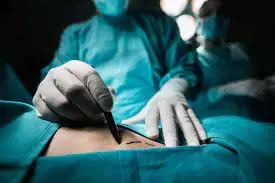- Home
- Medical news & Guidelines
- Anesthesiology
- Cardiology and CTVS
- Critical Care
- Dentistry
- Dermatology
- Diabetes and Endocrinology
- ENT
- Gastroenterology
- Medicine
- Nephrology
- Neurology
- Obstretics-Gynaecology
- Oncology
- Ophthalmology
- Orthopaedics
- Pediatrics-Neonatology
- Psychiatry
- Pulmonology
- Radiology
- Surgery
- Urology
- Laboratory Medicine
- Diet
- Nursing
- Paramedical
- Physiotherapy
- Health news
- Fact Check
- Bone Health Fact Check
- Brain Health Fact Check
- Cancer Related Fact Check
- Child Care Fact Check
- Dental and oral health fact check
- Diabetes and metabolic health fact check
- Diet and Nutrition Fact Check
- Eye and ENT Care Fact Check
- Fitness fact check
- Gut health fact check
- Heart health fact check
- Kidney health fact check
- Medical education fact check
- Men's health fact check
- Respiratory fact check
- Skin and hair care fact check
- Vaccine and Immunization fact check
- Women's health fact check
- AYUSH
- State News
- Andaman and Nicobar Islands
- Andhra Pradesh
- Arunachal Pradesh
- Assam
- Bihar
- Chandigarh
- Chattisgarh
- Dadra and Nagar Haveli
- Daman and Diu
- Delhi
- Goa
- Gujarat
- Haryana
- Himachal Pradesh
- Jammu & Kashmir
- Jharkhand
- Karnataka
- Kerala
- Ladakh
- Lakshadweep
- Madhya Pradesh
- Maharashtra
- Manipur
- Meghalaya
- Mizoram
- Nagaland
- Odisha
- Puducherry
- Punjab
- Rajasthan
- Sikkim
- Tamil Nadu
- Telangana
- Tripura
- Uttar Pradesh
- Uttrakhand
- West Bengal
- Medical Education
- Industry
CRP to albumin ratio may predict anastomotic leakage after esophagectomy in esophageal cancer: Study

Japan: A recent study by Dr. Atsushi Sugimoto and the team reported that preoperative CRP to albumin ratio in patients undergoing esophagectomy for thoracic esophageal squamous cell carcinoma may independently predict postoperative anastomotic leakage (AL). The study is published in the BMC Surgery journal.
Postoperative AL in esophageal cancer is associated not only with increased medical costs and prolonged hospital stay but also with poor prognosis. Previous studies have shown the use of various inflammation-based and/or nutritional markers for predicting postoperative complications. However, none of the studies have documented specific AL predictors for esophageal cancer.
Against the above background Atsushi Sugimoto, Osaka City University Graduate School of Medicine, Osaka, Japan, and colleagues aimed to evaluate predictors of AL after esophagectomy for thoracic esophageal cancer, with a focus on preoperative inflammation-based and/or nutritional markers.
The study was designed as a retrospective study and analyzed 295 patients who underwent radical esophagectomy for thoracic esophageal squamous cell carcinoma between June 2007 and July 2020. As inflammation-based and/or nutritional markers, Onodera prognostic nutritional index, C-reactive protein (CRP)-to-albumin ratio (CAR), and modified Glasgow prognostic score were investigated. Optimal cut-off values of inflammation-based and/or nutritional markers for AL were determined by receiver operating characteristic curves. Predictors for AL were analyzed by logistic regression modeling.
The results of the study were found to be
• AL was observed in 34 patients (11.5%). In univariate analyses, preoperative body mass index (≥ 22.1 kg/m2).
• Serum albumin level (≤ 3.8 g/dL), serum CRP level (≥ 0.06 mg/dL), CAR (≥ 0.0139), operation time (> 565 min) and blood loss (≥ 480 mL) were identified as predictors of AL.
• Multivariate analyses revealed higher preoperative CAR (≥ 0.0139) as an independent predictor of AL.
Dr. Sugimoto and the team concluded that "Preoperative CAR may provide a useful predictor of AL after esophagectomy for thoracic esophageal squamous cell carcinoma."
For further information: Sugimoto, A., Toyokawa, T., Miki, Y. et al. Preoperative C-reactive protein to albumin ratio predicts anastomotic leakage after esophagectomy for thoracic esophageal cancer: a single-center retrospective cohort study. BMC Surg 21, 348 (2021). https://doi.org/10.1186/s12893-021-01344-7
Medical Dialogues consists of a team of passionate medical/scientific writers, led by doctors and healthcare researchers. Our team efforts to bring you updated and timely news about the important happenings of the medical and healthcare sector. Our editorial team can be reached at editorial@medicaldialogues.in.
Dr Kamal Kant Kohli-MBBS, DTCD- a chest specialist with more than 30 years of practice and a flair for writing clinical articles, Dr Kamal Kant Kohli joined Medical Dialogues as a Chief Editor of Medical News. Besides writing articles, as an editor, he proofreads and verifies all the medical content published on Medical Dialogues including those coming from journals, studies,medical conferences,guidelines etc. Email: drkohli@medicaldialogues.in. Contact no. 011-43720751


